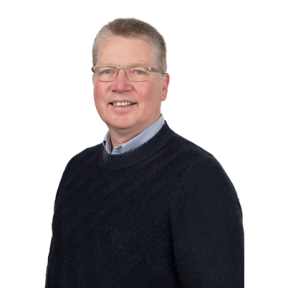Raising awareness of pancreatic cancer is important

Raising awareness of pancreatic cancer is important
Pancreatic cancer remains one of the world's toughest cancers. The percentage of patients who are alive five years after they get diagnosed, is below 10 percent. Despite efforts, improvements in outcome have been limited. With that in mind, it is important to encourage researchers on World Pancreatic Cancer Day.
We feel it as our moral obligation to increase awareness on pancreatic cancer. Because pancreatic cancer often causes no symptoms or only non-specific ones in its early stages, tumours are often detected too late. Although there has been some progress in the last few decades in treating this type of cancer, there still is only a limited benefit for a subset of patients.
Luckily, we are learning more about pancreatic cancer from basic and translational research programs. This opens doors for future therapies to be explored. We especially would like to highlight the work of Prof. Ilse Rooman (VUB, Brussels, Belgium), who conducts important fundamental research into the mechanisms of development and progression of pancreatic cancer. Because of her expertise in the field, Professor Rooman is also overseeing the clinical trials in pancreatic cancer at the Anticancer Fund.
"It has become clear that pancreatic cancer does not benefit from copy paste of therapies that work in other cancers, as has been tried too often. This sends out a clear message that we have to invest in research specifically dedicated to pancreatic cancer. Thorough study of the tumour’s biology and genetics to intervene earlier and to address subgroups of pancreatic cancer will be key", says Ilse Rooman.
We support innovative clinical trials
The Anticancer Fund, together with the Rising Tide Foundation for Clinical Cancer Research, committed to support more clinical trials testing novel and unique strategies in the treatment of patients diagnosed with pancreatic ductal adenocarcinomas and/or biliary tract cancer. We launched a request for proposals in April 2021 that are currently under evaluation and selection of new exciting research is anticipated by the end of the year. The chosen project will need to have the potential of a high impact, meaning it will improve cure rate or survival of the patient. Along with such dedicated calls, the Anticancer Fund is at all times open to discuss new research ideas.
Working with colleagues from the Cancer Registry of Norway, the Anticancer Fund has also investigated the effects of different non-cancer drugs, for instance drugs to treat diabetes or high blood pressure, on pancreatic cancer patients in a registry-based study. After comparing cancer patients treated with different drugs to those not treated, we saw a difference in survival. (*)
And, we help the patients too
Important to mention as well, people with pancreatic cancer also need information, no matter what stage of illness they are in. Through our personal service My Cancer Navigator, we offer patients the possibility to interact with our team, to ask questions regarding their treatment, and to receive tailor made answers that allow them to discuss their treatment options with their doctor.
As said, it is crucial to explore new options to treat pancreatic cancer. On this World Pancreatic Cancer Day let this be a pledge we all make, researchers and funders.
(*)
More information
To read more about the study with the the Cancer Registry of Norway
To discover a clinical trial we support in pancreatic cancer

